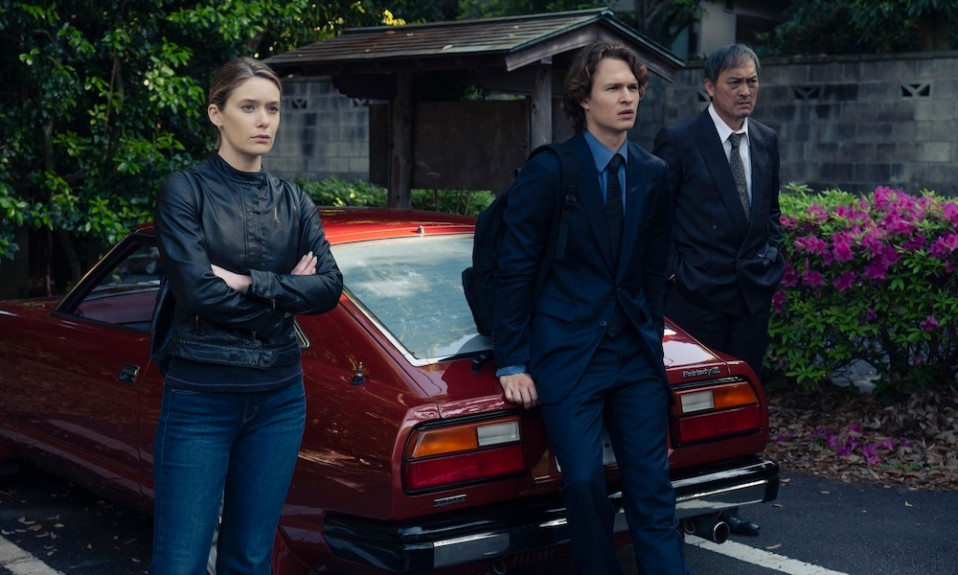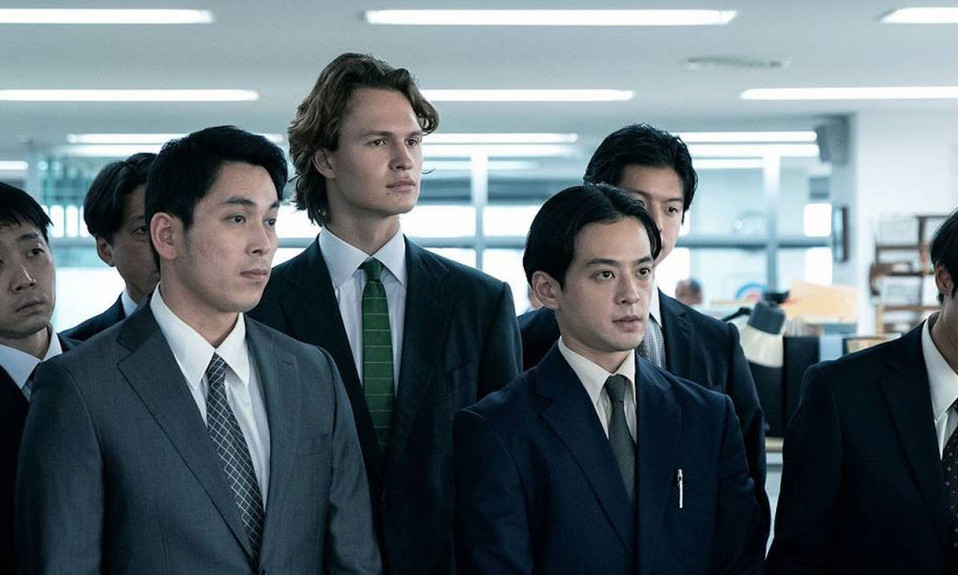One of the earliest moments of the sophomore season of ‘Tokyo Vice’ (2022 – ) has detective Hiroto Katagiri (Ken Watanabe) entering a dim-lighted hotel room, where fellow detective Jin Miyamoto (Hideaki Itô) lies dead with a needle piercing his arm, indicating a death by heroin overdose, all a ruse by the yakuza.
“The yakuza are adept at staging a murder to look like a suicide. In a country, where autopsies are rarely performed, they get away with it too often,” says Jake Adelstein, the book’s author and an executive producer on the series.
The made-up suicide scene reminds some viewers of when Det. Stanley Switek found his partner, Det. Larry Zito in the same condition in the series ‘Miami Vice’ (1984-1989), a product that ‘Tokyo Vice’ shares more than a similar name but also the same executive producer, Michael Mann. It is still different from the new wave soundtracked tropical city painted with pastels, the sombre scene is shown in stern colours, and the cops wear worn-out cheap clothes.
Themes
It is the way ‘Tokyo Vice’ differentiates itself from its older American brother, from its premiere season, and from other cop dramas from TV and movies as a whole standing as one of the best crime dramas produced while meticulously peculiarly approaching themes of the genre.
“Death” is a present theme in ‘Tokyo Vice’ as it has a nihilistic darkness cracking through the walls that compose the characters’ lives. The demise of a cop serves as a harrowing signal to present that even those who are there to protect the citizens and are used to dangerous situations won’t be spared; therefore, the innocent can be harmed too, and those perpetuating violence are seen as a formidable threat to societal coexistence.
“Time” is also essential, as journalists and law enforcement agents are moving against it to prevent more drama from hitting the streets and contaminating the lives of those they care about, Tokyo and Japanese societies. It is a theme usually exploited by Mann, and in ‘Tokyo Vice,’ it is represented by luxury watches, particularly the very exclusive Vacheron Constantin that, with its elite status, seems to give a (false) feeling of breaking the inevitability of fortuná to their wearers.
“Silence” is another aspect that helps further the narrative of ‘Tokyo Vice.’ The way some communicate with spaced speeches, long staring with desperate or sorrowful eyes contrast with the American way of Jake Adelstein (Ansel Elgort) but also brings a looming danger that is more hurtful than when the violence flows in a spray of bullets, a vicious stabbing or a pile-on beating as those affairs are solved in matters of seconds. Those moments with apprehensive faces mark how the work life of those in the night can be stressful and lead to mental health trauma that can manifest itself as life-threatening sicknesses.
Impact
‘Tokyo Vice’ is a foreign production that enjoyed more open shooting doors than any predecessor. It shows the city’s richness and will probably affect the tourist industry, even if it deals with such delicate and disturbing subjects. Nevertheless, there are scenes of love, not only carnal but also fraternal, that humanize these characters and the city itself, while the cinematography shows how unique its landscape is.
Although Adelstein is front and centre in the promo material, the series is an effort of an ensemble cast from which Ken Watanabe, with his weary and dutiful law agent, should be a contender in the awards season. Ayumi Tanida’s Tozawa is one of the most dreadful villains in recent TV, in pair with Jon Bernthal’s Wayne Jenkins from ‘We Own This City’ (2022). Meanwhile, the viewer can see Ansel Elgort growing as an actor before their eyes and see that the stylish Shô Kasamatsu added more layers to his youngster yakuza, showing traces of a true leading man. Second-season addition Yôsuke Kubozuka portrays a crazy-eyed secondary villain who is pretty very different from the young brother he portrayed in Netflix’s ‘Giri/Haji’ (2019).
The female cast, composed of Rachel Keller, Ayumi Ito, Miki Maya, Hyunri, and Makiko Watanabe, gave good performances and had enough time to stand out, showing us more about the lives of Japanese women who are associated with the yakuza or fight against it.
Film director and cinema historian, Paul Schrader, who knows a great deal about Japan, has lauded the dialogues. It proves the strength of a strong writers’ room, a class that has been battered, as seen during the strike last year.
Showrunner J.T. Rogers gave ‘Tokyo Vice’ season two a rare, satisfying final chapter that closes the story but opens for new branches. If greenlighted for a third season, it can go one more round, showing a new vision of Tokyo’s dark underbelly and those who venture into it.
Also Read: Tokyo Vice: Unmasking Japan’s Underworld with HBO’s Groundbreaking Crime Drama













